Both table tennis players had a determined look etched on their faces. Concentrating hard in their wheelchairs, their eyes were following the ball intently, determined not to give away the match point – yet again.
The ball came and the wheelchair-bound doctor prepared to connect with it. But his bat hit an air shot with the ball bouncing onto the floor. Dejection and disappointment was written all over Dr. William Tan’s face.
The score was 15-13. He had battled so hard, yet the medical doctor had lost the set and eventually the quarterfinal match, by a very narrow margin of three sets to two. This was at the National Veterans Table Tennis Championships (Wheelchair Singles category) – held last weekend.
But it had been a very good performance from the 56-year-old doctor, who was struck by polio as a two-year-old and has been paralyzed from the waist down ever since.
Lives life to the fullest
Dr. Tan, who works at the National Cancer Centre and looks after chemotherapy patients, has never let his disability prevent him from living life to the fullest.
He has gone on to break boundaries and constantly pushes his body to the limits. Besides table tennis, he has also done wheelchair racing (running races in his wheelchair) and even taken part in marathons and other extreme events – including the North Pole and Antarctic Marathon races. This had been part of his successful bid to complete seven marathons on seven continents – and he achieved this in a record timing of 26 days and 17 hours, in 2007.
Focusing his energy on table tennis since his leukemia diagnosis
But he has been focusing his energy more on table tennis now though, ever since his Stage 4 leukemia diagnosis in 2009.
“When I was diagnosed, I was told that wheelchair racing and marathons were too intense for me. And being a cancer patient, I was advised not to go outdoors and be under the sun,” William said, explaining the reason for the change in his sport.
He added, “But playing table tennis is indoors. And it is also a great form of exercise and very safe. Now this has become my passion.”
In fact, he has become so good at table tennis now, that he has gone on to represent Singapore at the ASEAN Para Games, in both 2011 and 2014.
He won a bronze medal, in straight sets, at this year’s Class 4 Team event. (Athletes in Class 1 have the most severe disabilities and those in Class 5 are the least severe).
Table tennis gives many disabled people a new lease of life
William is a member of the Table Tennis Association for the Disabled Singapore (TTADS) and like many of the other players, taking up table tennis has definitely given him a new lease of life and something to look forward to.
57-year-old Kevin Pang, the President of the TTADS, said, “Besides preparing national players (like William), we also act as a group for holistic education for those who have lost their limbs, or the use of their limbs.”
He added, “Sometimes, these people suffer from depression and want to commit suicide. So as a table tennis group we give them a goal, like playing for the national team. It is something that other disabled people can aim for.”
Inspiring others through motivational talks and school trips
Mobility-impaired athletes can be a real inspiration to others, because they are able to use their own disabilities to motivate or inspire other people in a similar position.
The TTADS players motivate other disabled people, through motivational talks, as well as trips to schools and universities.
“In order to inspire other disabled people, we must come forward and show ourselves and demonstrate to them what they are capable of,” said retiree and table tennis player William Ho, who is in his sixties. He too, had suffered from polio as a child.
Kevin added, “It is easier for them (the TTADS players), being disabled themselves, to motivate or inspire other similar people.” He cited 31-year-old Para-athlete Jason Chee as a shining example of this.
Added Kevin, “Jason goes to hospitals regularly to motivate others – to help with depression and forming social groups”.
Took up table tennis as a form of rehabilitation
Jason, who had lost both his legs and his left arm in a horrific navy accident in December 2012, initially took up table tennis as a form of rehabilitation (rehab).
“To me, table tennis is a sort of rehab exercise to train the upper body muscles and hand muscles,” said the navy serviceman and UNI-SIM undergraduate in Mathematics.
Won a bronze medal at the ASEAN Para Games
And he has since fallen in love with table tennis, even winning a bronze medal in the ASEAN Para Games (Class 3) earlier this year, after only after six months of training.
“Yes, I can say I am a big talent!” Jason quipped jokingly.
Wheelchair table tennis can be challenging
But despite what he has accomplished, Jason does admit that playing table tennis in a wheelchair can be quite challenging.
He said, “I can’t reach some of the positions with the ball, so I have to train very hard in this area. My body and arm muscles must be strong and I must improve my flexibility.”
A positive mindset and determination to excel in the sport
It’s even more difficult for Jason because he only has one hand, but he has coped very well, through his positive mindset and determination to excel in the sport.
Jason added, “Table tennis is a good exercise for disabled persons. I hope to use what I have achieved in the sport, to inspire many other disabled people to take part in table tennis.”
With his positive attitude and outlook, he will certainly continue to win medals for Singapore and be a motivational figure in the Singapore disabled sports scene – for years to come.
Show your support for disabled athletes, such as Dr. William Tan and Jason Chee. Click here.
Other Blog Posts
- Click here to read about Jason Chee’s inspiring story.
- Click here to read about visually handicapped runners taking on Sundown Marathon.
- Click here to read about Singapore’s handcyclists.
- Click here to read the Singapore Blade Runner’s story at the Boston Marathon.

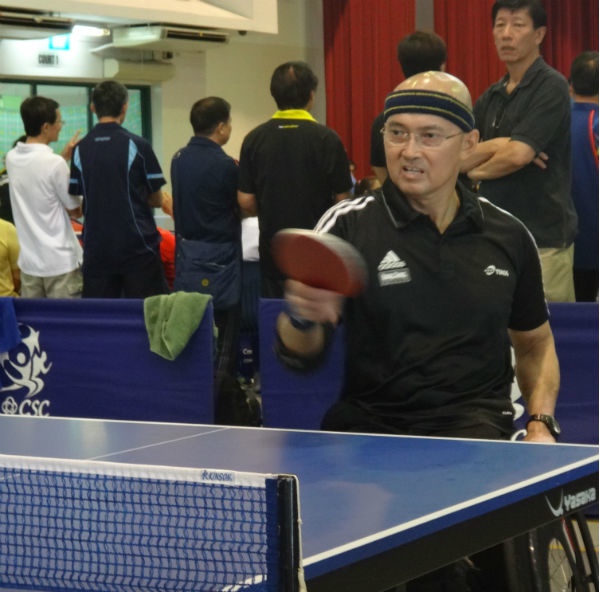
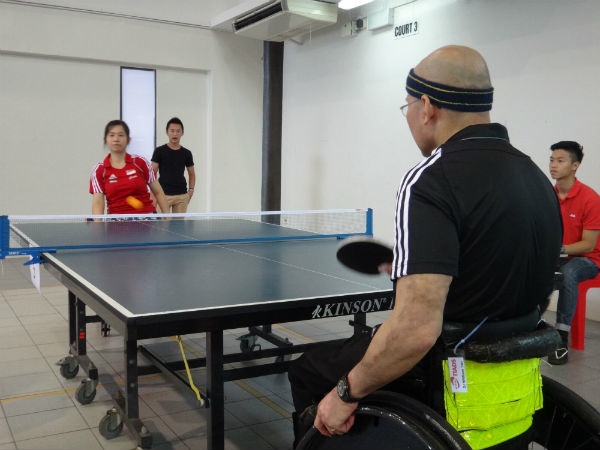
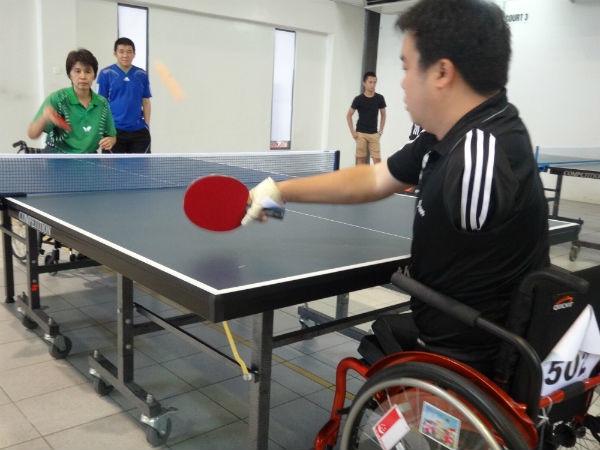
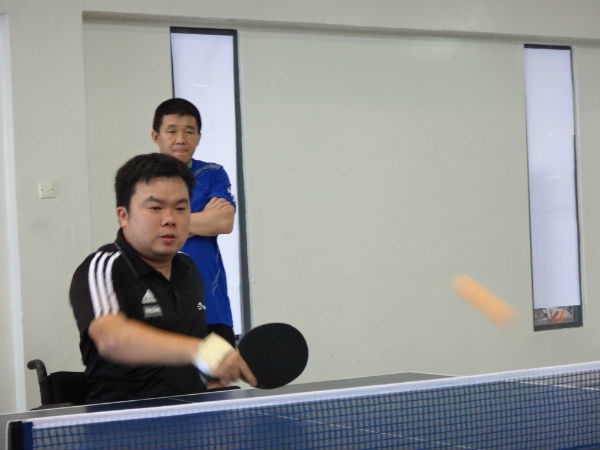
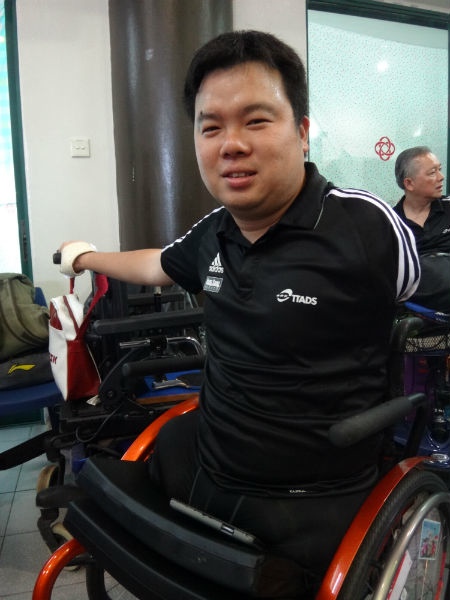
Leave a Comment